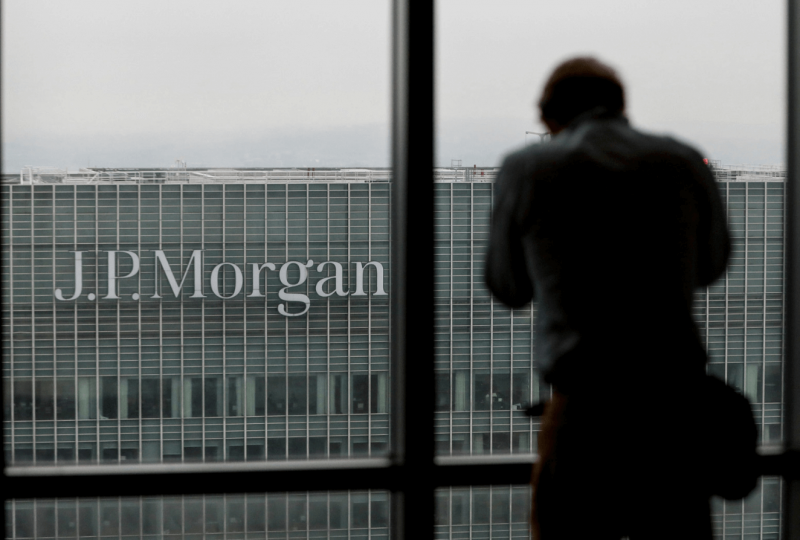European Markets Fall As Moderna Boss Says Vaccine Less Effective Against Omicron
Nov 30, 2021

European stocks tumbled in negative territory on Tuesday, canceling small gains earlier in the week, as increased concerns over the Omicron coronavirus strain could undermine the economic recovery.
The FTSE 100 (FTSE) dipped 0.3% in the afternoon trading in London, rebounding from larger losses during the day, while the French CAC (FCHI) lost 0.1% and the DAX (GDAXI) lost roughly 0.2% in Germany.
The decline occurred as Stephane Bancel, the CEO of pharmaceutical Moderna (MRNA), told the Financial Times that COVID-19 vaccines are probably won't be as successful against the Omicron strain as they have been against the Delta version.
The Chief executive of the pharma firm thinks that there will be a material drop. It's unclear exactly how much, because more information is needed. But all the scientists say that nothing good will come of it.
This mood differs from that of Pfizer (PFE) and BioNTech (BNTX), which believe that any novel vaccine might be updated very fast. The University of Oxford stated on Tuesday that there was no indication that vaccines would not protect from a severe course of the omicron disease, but that it was prepared to quickly create an upgraded version of its vaccine created with AstraZeneca (AZN.L) if needed.
As senior investment and markets analyst at Hargreaves Lansdown Susannah Streeter said, It's unclear how much less successful they may be, and the waiting game continues as scientists hurry to evaluate the new version, but fear is rising in this period of uncertainty.
Investors are concerned about Omicron's impact on the market, which risks lowering demand and becoming a big disaster for the global economy. Energy equities and banks are one of the largest losers.
Energy and banking equities have fallen the most as investors are concerned about Omicron’s impact on the market because the new strain risks reducing demand and becoming a big disaster for the global economy.
It also occurred as Eurozone inflation hit a new high of 4.9% this month, pushed by rising energy prices.
This was the highest level since the eurozone's inception in1999, putting additional pressure on the European Central Bank to react before its session next month on December 16th.
After the bell in New York, the S&P 500 (GSPC) sank 0.6% and the tech-heavy Nasdaq (IXIC) dipped 0.1%. The Dow Jones Industrial Average (DJI) opened 0.8% lower. Shares of travel and energy companies suffered losses, as investors worried that new limitations would reduce demand.
It followed a strong session on Monday for Wall Street, which reacted enthusiastically to information from US President Joe Biden that future lockdowns as a result of the strain were not on the table for the moment.
Consumer confidence in the United States fell in November, owing to fears about growing living costs and the pandemic.
The Conference Board's consumer sentiment index fell to 109.5 this month from 111.6 in October, stronger than forecast. This was the lowest level since February.
Consumers' confidence expectations declined to 87.6 from 89.0 during the same time, as the introduction of the new variation raised additional concerns.
Asian markets tumbled late in Tuesday's trading, shedding early gains as investors feared the Omicron strain will be resistant to vaccinations, causing significant economic damage.
In Japan, the Nikkei (N225) finished the day 1.6% down, reversing the whole 1.2% profit it had gained before in the session.
The Hong Kong Hang Seng Index (HSI) dipped 1.6%, while the Shanghai Composite Index (000001.SS) finished flat, as productivity in China's services sector rose at a somewhat slower rate in November.
Official statistics released on Tuesday revealed that the industry was harmed by further lockdown restrictions imposed by the government as they tried to manage the current outbreak.
At the same time, Hong Kong has expanded its restriction on non-residents from several African nations, including Angola, Ethiopia, Nigeria, and Zambia. For residents of these countries, entry is prohibited from 30 November.
Non-residents who have visited Austria, Australia, Belgium, Canada, Czech Republic, Denmark, Germany, Israel, and Italy within the last 21 days will be barred from entering the city beginning December 2.




